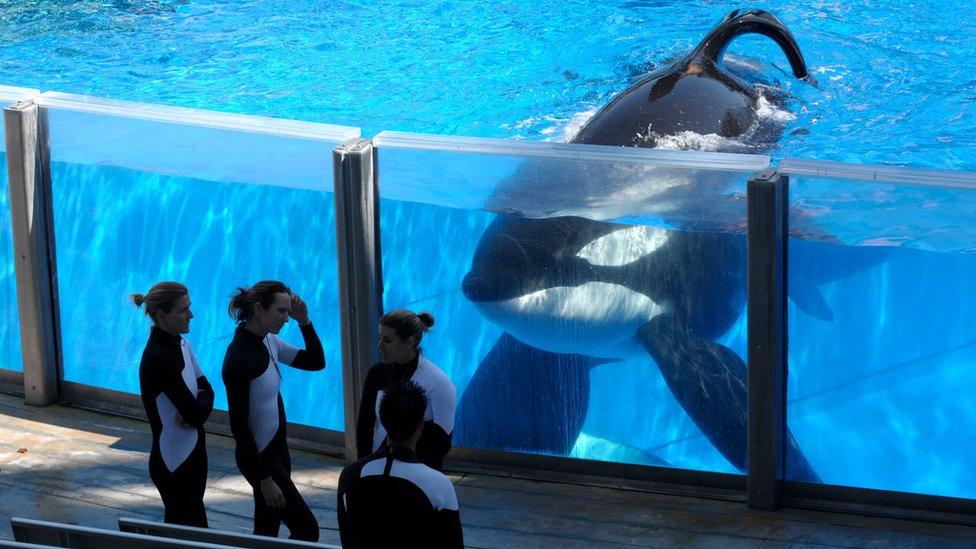For months, social media has been obsessed with the touching scenes of a marine trainer and a giant gray whale at a private marine research bay. Together, they created moments that felt like straight out of a movie—hand waves, synchronized swimming, and what looked like pure affection between man and animal.
Videos showing the whale gently nudging the trainer or playfully swimming circles around him went viral across platforms. Comments poured in calling their bond “magical,” “inspirational,” and even “a symbol of peace between humans and the ocean.”

But 48 hours ago, the truth behind this seemingly perfect relationship shocked the world.
A Hidden Pain
According to the Whale and Dolphin Conservation Society (WDC), the whale had been suffering from a severe, untreated injury for nearly three years—a deep internal wound likely caused by entanglement in commercial fishing nets. The whale’s behavior—often mistaken for affection—was, in fact, a sign of chronic pain, disorientation, and trauma.
Marine experts noted that the whale’s close interactions with humans were not natural but rather a coping mechanism due to its inability to rejoin its pod or navigate deep waters.
“The trainer was likely the only source of consistent contact it had,” one biologist said. “But that doesn’t mean the whale was healed. It means it was broken—and surviving.”

From Bond to Tragedy
The situation took a dramatic turn last weekend. According to eyewitnesses, during a routine interaction at the lagoon, the whale suddenly turned aggressive.
In a shocking moment, it bit the trainer’s arm, dragging him partially underwater before letting go. The man was rescued by on-site staff and rushed to the hospital, where he remains in recovery with serious but non-life-threatening injuries.
The whale was later found circling the lagoon restlessly, showing signs of distress and confusion. Marine behaviorists believe that the bite was not intentional violence, but a result of accumulated stress, miscommunication, and unresolved trauma.
A Complicated Ending

The trainer has since issued a quiet statement from the hospital:
“I still love that whale. I never blamed it for a second. If anything, we failed to listen to its pain.”
This tragic incident has sparked heated discussions online. Some blame the facility for allowing prolonged contact without addressing the whale’s injuries. Others argue that no animal—especially one in distress—should ever be treated like a performer or emotional crutch.
The Real Message
What began as a heartwarming friendship has ended in heartbreak, pain, and reflection. The whale’s story is no longer just about human-animal connection—it is a warning about the dangers of romanticizing trauma, and the urgent need for real marine protection, not just sympathy-driven entertainment.
Because sometimes… what we think is love, is actually a cry for help.